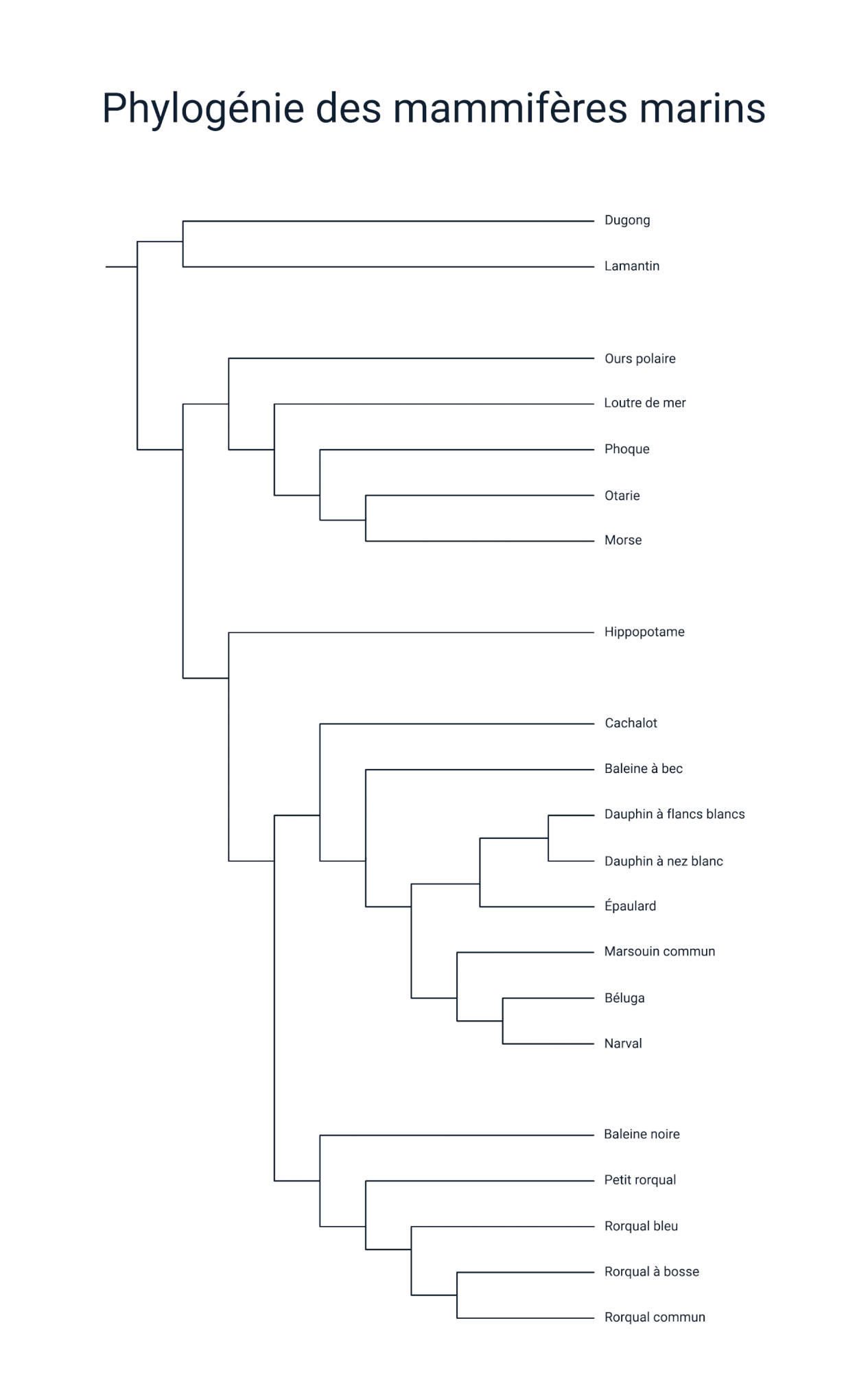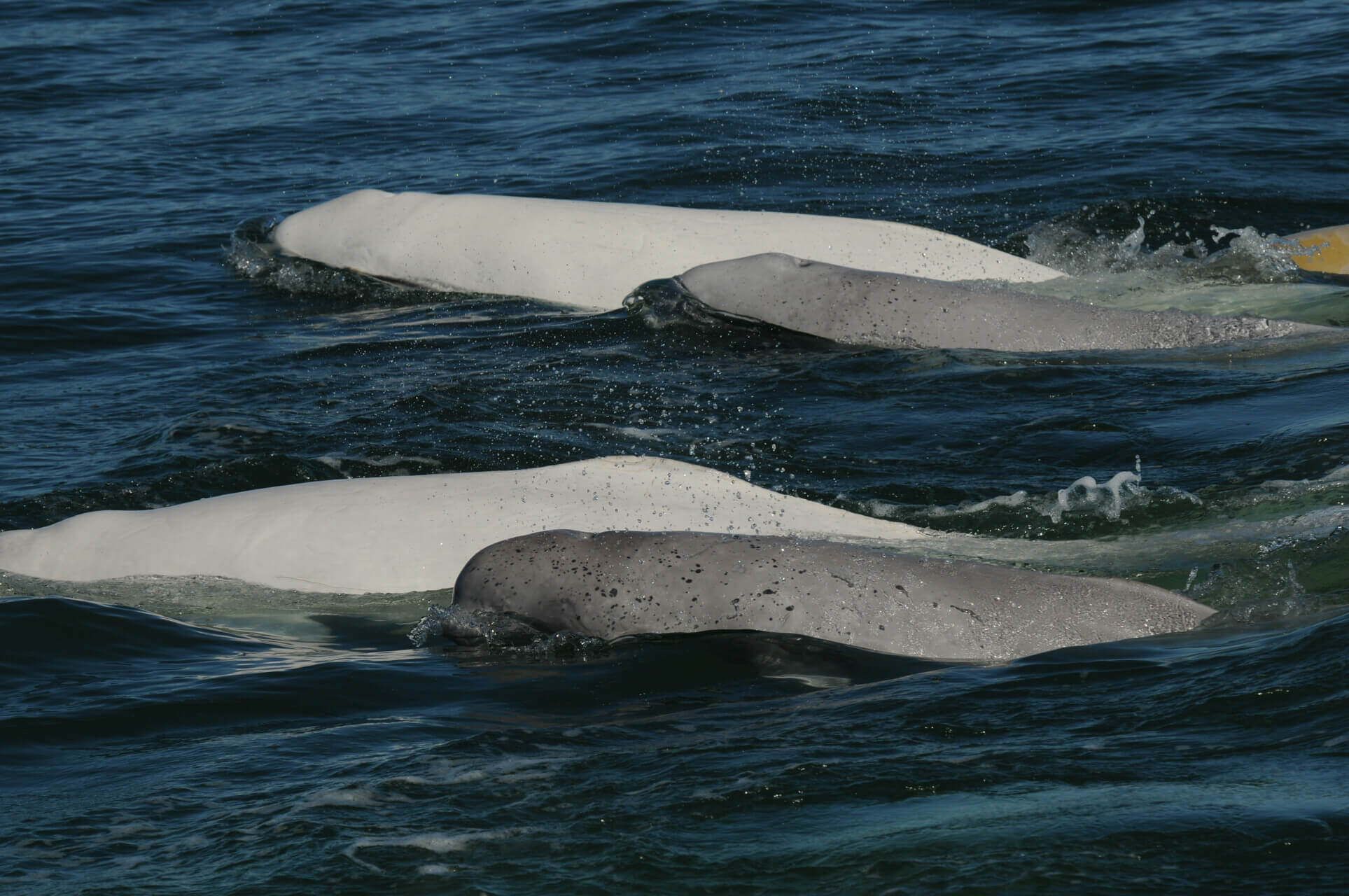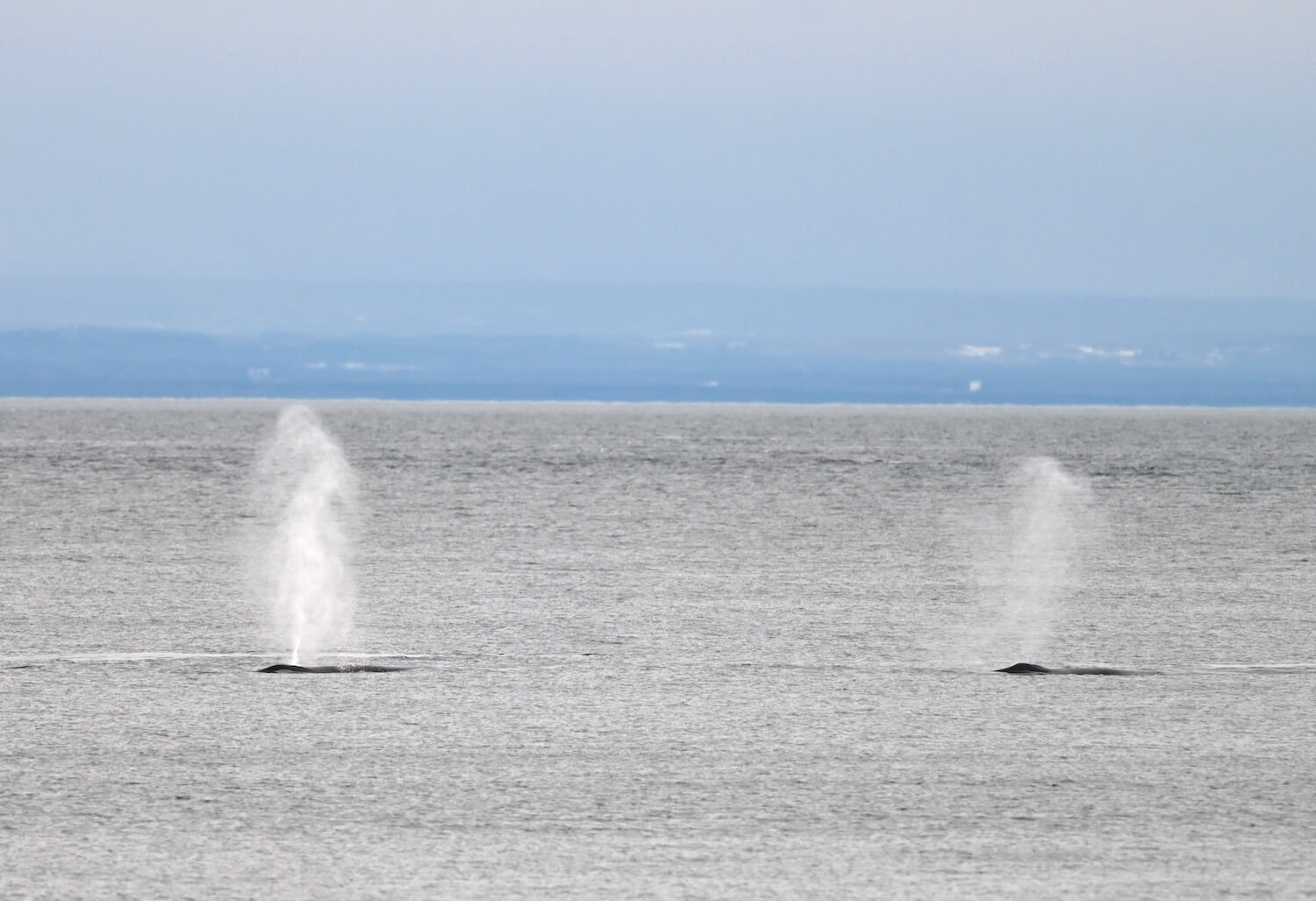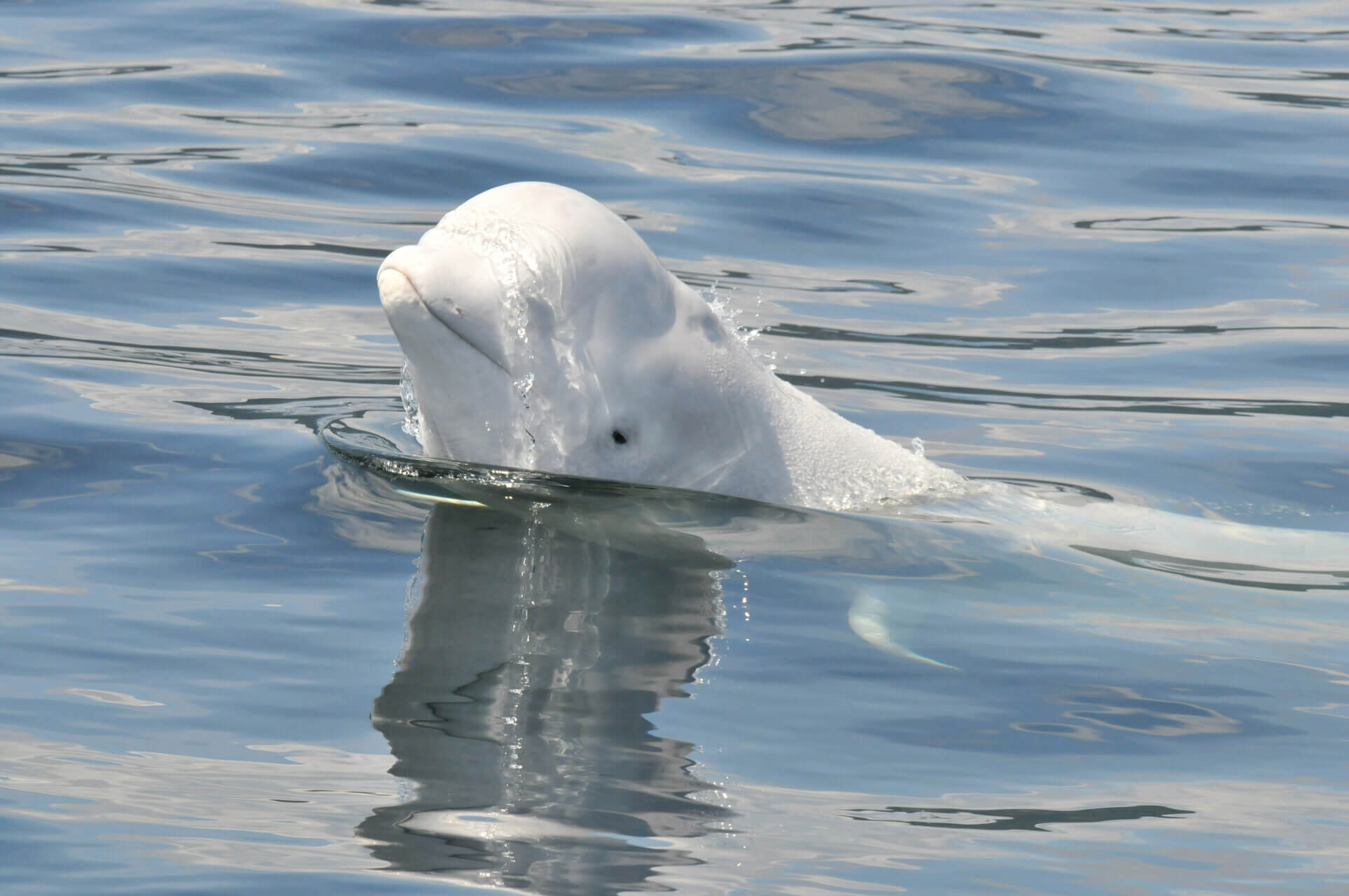The vocabulary used to talk about our whales can sometimes be confusing. Should we say “marine mammal,” “cetacean,” “whale,” or “rorqual”? One thing we can say for sure is that all whales are cetaceans! However, the term “whale” can be more or less encompassing, depending on the source.
Both on our website and in our museum in Tadoussac, the linguistic choice we made is that all cetaceans are whales! There are toothed whales (e.g. dolphins, porpoises, belugas, killer whales and sperm whales) and baleen whales (e.g. right whales and rorquals). When we talk about baleen whales that have ventral grooves, we prefer to use the precise term “rorqual,” which immediately calls to mind how these “gulpers” feed and the genetic links between the different species. Examples of rorquals that frequent the St. Lawrence include fin, minke, blue and humpback whales.
For some research organizations, the term “whale” applies to all baleen whales, including rorquals, a group of cetaceans that have both baleen and ventral grooves, and those in the right whale family (such as the North Atlantic right whale and the bowhead whale). In everyday usage, however, the term “whale” applies to just about any sizable cetacean, regardless of whether the species has teeth or baleen.
Marine mammals, not fish!
Whether they have teeth or baleen, cetaceans are all mammals, and not fish (article in French). This is because whales do not have the same respiratory system as fish and must come to the surface to breathe. Like other mammals, they are viviparous and nurse their young, whereas fish lay eggs. So even a fish as big as a shark (article in French) does not qualify as a marine mammal!
On the other hand, not all marine mammals are whales. Marine mammals also comprise polar bears, otters, pinnipeds (seals, sea lions and walruses) and sirenians (dugongs and manatees). The aforementioned species do not have strong genetic ties to one another; rather, they only share a predominantly or exclusively aquatic lifestyle. The St. Lawrence is home to a large diversity of marine mammals: 13 species of cetaceans and 4 species of seals.







